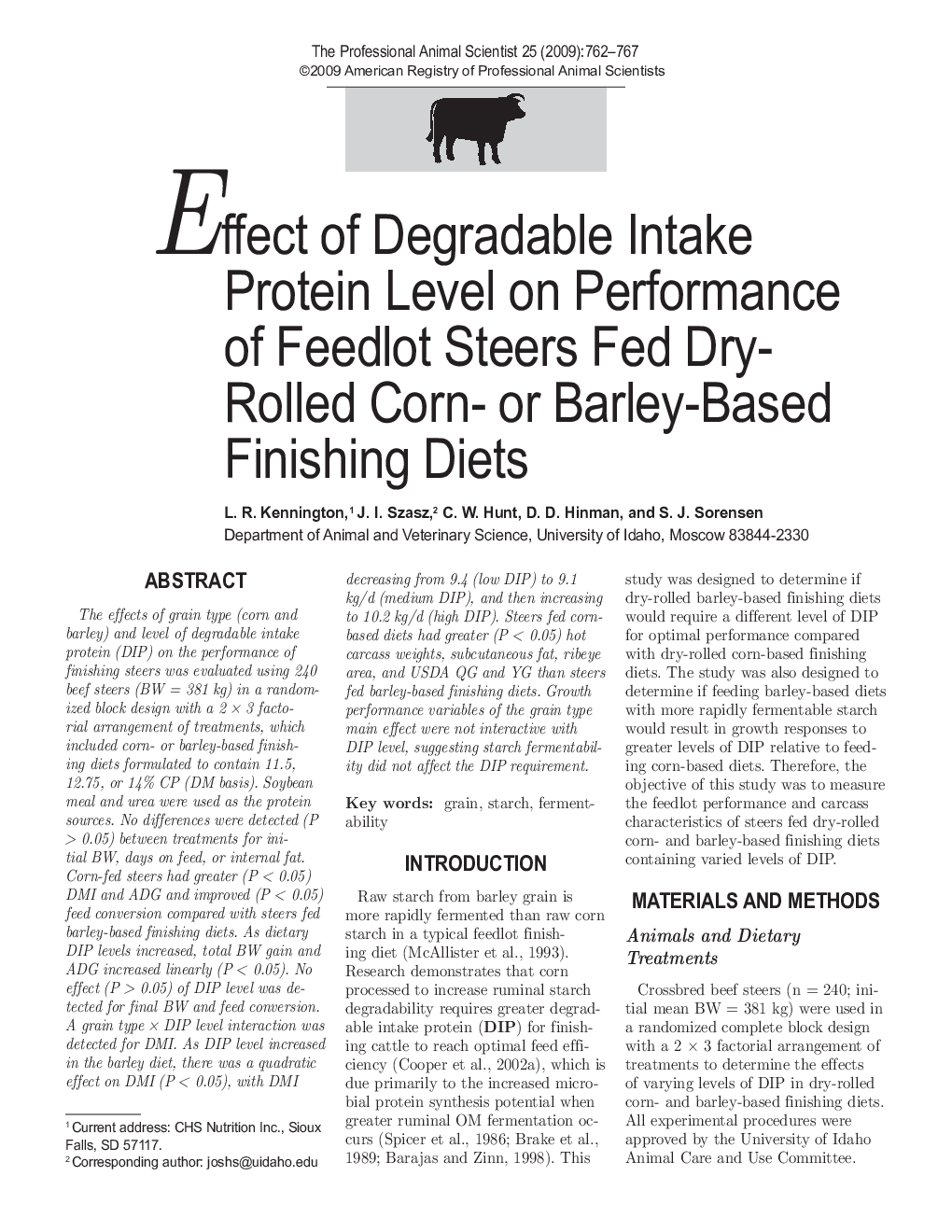| Article ID | Journal | Published Year | Pages | File Type |
|---|---|---|---|---|
| 2454445 | The Professional Animal Scientist | 2009 | 6 Pages |
Abstract
The effects of grain type (corn and barley) and level of degradable intake protein (DIP) on the performance of finishing steers was evaluated using 240 beef steers (BW = 381 kg) in a randomized block design with a 2 à 3 factorial arrangement of treatments, which included corn- or barley-based finishing diets formulated to contain 11.5, 12.75, or 14% CP (DM basis). Soybean meal and urea were used as the protein sources. No differences were detected (P > 0.05) between treatments for initial BW, days on feed, or internal fat. Corn-fed steers had greater (P < 0.05) DMI and ADG and improved (P < 0.05) feed conversion compared with steers fed barley-based finishing diets. As dietary DIP levels increased, total BW gain and ADG increased linearly (P < 0.05). No effect (P > 0.05) of DIP level was detected for final BW and feed conversion. A grain type à DIP level interaction was detected for DMI. As DIP level increased in the barley diet, there was a quadratic effect on DMI (P < 0.05), with DMI decreasing from 9.4 (low DIP) to 9.1 kg/d (medium DIP), and then increasing to 10.2 kg/d (high DIP). Steers fed corn-based diets had greater (P < 0.05) hot carcass weights, subcutaneous fat, ribeye area, and USDA QG and YG than steers fed barley-based finishing diets. Growth performance variables of the grain type main effect were not interactive with DIP level, suggesting starch fermentability did not affect the DIP requirement.
Keywords
Related Topics
Life Sciences
Agricultural and Biological Sciences
Animal Science and Zoology
Authors
L.R. Kennington, J.I. Szasz, C.W. Hunt, D.D. Hinman, S.J. Sorensen,
